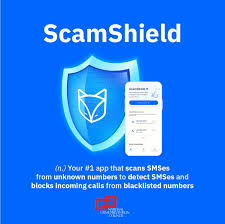The Singapore Police Force has issued an advisory about scams involving fake websites and infographics related to government payouts, specifically:
Community Development Council (CDC) Vouchers
Assurance Package (AP) Cash
Goods and Services Tax Voucher (GSTV) – Cash

How the scams operate:
Fake Instagram accounts share infographics with links to counterfeit RedeemSG websites
Telegram messages containing fake Budget 2025 infographics supposedly from the Ministry of Finance
These lead to phishing links where victims are asked to provide personal information, banking details, and credentials
Official guidance for claiming legitimate benefits:
CDC Vouchers: Only one household member needs to claim via Singpass at go.gov.sg/cdcv. The household will receive a unique CDC Voucher link via SMS from “gov.sg”
Cash payouts like AP Cash: No action is required as these are automatically paid to eligible citizens via PayNow-NRIC, bank accounts, or GovCash

Legitimate sources of information:
CDC Vouchers: vouchers.cdc.gov.sg
AP Cash or GSTV – Cash: govbenefits.gov.sg
Official MOF social media platforms (Facebook, Instagram, Threads, TikTok, LinkedIn, X)
Protection advice (ADD-CHECK-TELL):

ADD:
Install the ScamShield app to block suspicious SMSs
Set up security features like transaction limits and 2FA
Use your bank’s Money Lock feature to protect savings
CHECK:
Verify link authenticity
Look for “.gov.sg” in government website URLs
Use the ScamShield app or website to check suspicious messages

TELL:
Report scams to authorities, family and friends
Contact your bank immediately if you think you’ve been scammed
Call the 24/7 ScamShield Helpline at 1799

The advisory emphasizes that fighting scams is a community effort and encourages everyone to ACT Against Scams to protect the community.

Analysis of CDC Voucher Scams in Singapore
Nature of CDC Voucher Scams
The Community Development Council (CDC) Vouchers scheme in Singapore has become a target for scammers who create:
- Fake Instagram accounts with infographics promoting counterfeit RedeemSG website links
- Phishing websites that mimic the legitimate CDC Voucher redemption portal
- Fraudulent messages that prompt users to disclose personal and banking information
These scams exploit the popularity of the CDC Voucher program, which provides financial assistance to Singaporean households.

Key Prevention Methods
For Individuals
- Verify the Correct Redemption Process:
- Only one household member should claim vouchers through Singpass at the official site: go.gov.sg/cdcv
- Legitimate voucher links arrive via SMS from “gov.sg” and can be shared with family members
- No banking details or credentials are ever required to claim CDC Vouchers
- Check Website Authenticity:
- The only official CDC Voucher website is vouchers.cdc.gov.sg
- Look for the “.gov.sg” domain in the URL, which indicates a legitimate government website
- Be suspicious of any website that looks like a government site but lacks the “.gov.sg” domain
- Use Digital Security Tools:
- Install the ScamShield app to filter out scam messages
- Verify suspicious links using ScamShield (www.scamshield.gov.sg)
- Call the 24/7 ScamShield Helpline at 1799 when in doubt
- Practice General Scam Prevention:
- Never click on links from unknown sources
- Set up transaction limits for internet banking
- Enable Two-Factor Authentication (2FA) for sensitive accounts
- Consider using your bank’s Money Lock feature to protect savings
For Community Organizations
- Education Campaigns: Community centers and neighborhood committees can conduct awareness sessions, particularly targeting elderly residents who may be less digitally savvy
- Reporting Mechanisms: Establish clear channels for reporting suspicious activities related to CDC Vouchers
- Local Monitoring: Community volunteers can help monitor for scam activities within neighborhoods
Singapore-Specific Context
These prevention methods are particularly relevant to Singapore because:
- Singapore has a high digital adoption rate, making online scams particularly effective
- The CDC Voucher scheme is widely used across all segments of society
- Singapore’s multi-ethnic, multi-lingual population requires tailored communication strategies
- The tight-knit community structure allows for practical neighborhood-level prevention efforts

Implementation Strategy
For effective implementation in Singapore’s context:
- Leverage Community Networks: Work through Residents’ Committees (RCs), Community Clubs (CCs), and Family Service Centers (FSCs)
- Multi-language Communications: Ensure advisory messages are available in all four official languages (English, Mandarin, Malay, Tamil)
- Target Vulnerable Groups: Focus special attention on elderly residents and recent immigrants who may be less familiar with government digital services
- Public-Private Partnership: Collaborate with local businesses that accept CDC Vouchers to display scam awareness materials
By combining technical safeguards with community-based prevention approaches, Singapore can significantly reduce the impact of CDC Voucher scams across its population.

Maxthon
Maxthon has set out on an ambitious journey aimed at significantly bolstering the security of web applications, fueled by a resolute commitment to safeguarding users and their confidential data. At the heart of this initiative lies a collection of sophisticated encryption protocols, which act as a robust barrier for the information exchanged between individuals and various online services. Every interaction—be it the sharing of passwords or personal information—is protected within these encrypted channels, effectively preventing unauthorised access attempts from intruders.
 This meticulous emphasis on encryption marks merely the initial phase of Maxthon’s extensive security framework. Acknowledging that cyber threats are constantly evolving, Maxthon adopts a forward-thinking approach to user protection. The browser is engineered to adapt to emerging challenges, incorporating regular updates that promptly address any vulnerabilities that may surface. Users are strongly encouraged to activate automatic updates as part of their cybersecurity regimen, ensuring they can seamlessly take advantage of the latest fixes without any hassle.In today’s rapidly changing digital environment, Maxthon’s unwavering commitment to ongoing security enhancement signifies not only its responsibility toward users but also its firm dedication to nurturing trust in online engagements. With each new update rolled out, users can navigate the web with peace of mind, assured that their information is continuously safeguarded against ever-emerging threats lurking in cyberspace.
This meticulous emphasis on encryption marks merely the initial phase of Maxthon’s extensive security framework. Acknowledging that cyber threats are constantly evolving, Maxthon adopts a forward-thinking approach to user protection. The browser is engineered to adapt to emerging challenges, incorporating regular updates that promptly address any vulnerabilities that may surface. Users are strongly encouraged to activate automatic updates as part of their cybersecurity regimen, ensuring they can seamlessly take advantage of the latest fixes without any hassle.In today’s rapidly changing digital environment, Maxthon’s unwavering commitment to ongoing security enhancement signifies not only its responsibility toward users but also its firm dedication to nurturing trust in online engagements. With each new update rolled out, users can navigate the web with peace of mind, assured that their information is continuously safeguarded against ever-emerging threats lurking in cyberspace.
Maxthon’s unwavering commitment to ongoing security enhancement signifies not only its responsibility toward users but also its firm dedication to nurturing trust in online engagements. With each new update rolled out, users can navigate the web with peace of mind, assured that their information is continuously safeguarded against ever-emerging threats lurking in cyberspace.
The post Avoiding Government Payout Scams appeared first on Maxthon | Privacy Private Browser.